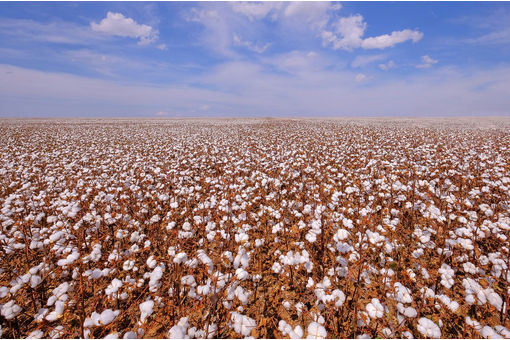Interviews
Seminar on 'Taking confusion out of textile certification'
05 Sep '08
3 min read
Oeko-Tex's “Taking the Confusion Out of Textile Certification” address at FabrickLink's 11th Annual Industry Event seminar at Outdoor Retailer earlier this month was well attended by textile industry representatives anxious to learn more about their certification options.
Dina Dunn, who presented on behalf of Oeko-Tex, shared why certification is important, what makes the Oeko-Tex Standard 100 certification so unique, and the benefits that textile certification provides to manufacturers, retailers, and consumers.
“Textile certification is still a new idea to many companies in the US”, says Dunn. “When I meet with retailers and manufacturers or present at textile industry events, I am often asked for simple definitions for the many eco-textile terms used in the market today. At the Outdoor Retailer presentation, for example, the key question was about the difference between Oeko-Tex certification and organic certification.”
The Oeko-Tex Standard 100 certification assures that textile products are tested to be free from harmful levels of more than 100 substances known to be detrimental to human health. The Oeko-Tex restricted substances list (RSL) reflects the latest in textile chemistry and governmental regulations from around the world.
The certification is voluntary, is conducted by independent third party laboratories, and requires annual testing to remain valid. The Oeko-Tex Association randomly purchases certified products on the open market and tests them to confirm that its standards are being maintained. However, Oeko-Tex Standard 100 certification does not indicate that textiles are organic.
Organic textile certification in the US is regulated by the USDA under its National Organic Program (NOP) and globally under the Global Organic Textile Standard (GOTS). To qualify as organic, wool, cotton, flax and other natural fibers must be produced under stringent standards governing the use of synthetic fertilizers, pesticides, and other production components.
For finished textile products to be labeled as organic, they must meet both the NOP fiber production and the NOP/GOTS processing standards which govern handling and manufacturing. However, an organic textile product is not necessarily tested to be free from harmful levels of unsafe chemicals unless it is also Oeko-Tex certified.
The Oeko-Tex Standard 100 certification and organic certification offer distinct but equally critical reassurances to manufacturers, retailers, and consumers. Oeko-Tex certification provides confidence that textile products are safe for human use. Organic certification ensures that textile products are produced according to strict guidelines without the use of conventional pesticides, petroleum-based fertilizers, or synthetic products.
“Oeko-Tex is committed to helping the textile industry and retailers understand the benefits of textile certification and the process to become certified,” says Dr. Manfred Wentz, Oeko-Tex's US director. “By doing so, we help the textile industry make itself safer for people and for the environment.”
Dina Dunn, who presented on behalf of Oeko-Tex, shared why certification is important, what makes the Oeko-Tex Standard 100 certification so unique, and the benefits that textile certification provides to manufacturers, retailers, and consumers.
“Textile certification is still a new idea to many companies in the US”, says Dunn. “When I meet with retailers and manufacturers or present at textile industry events, I am often asked for simple definitions for the many eco-textile terms used in the market today. At the Outdoor Retailer presentation, for example, the key question was about the difference between Oeko-Tex certification and organic certification.”
The Oeko-Tex Standard 100 certification assures that textile products are tested to be free from harmful levels of more than 100 substances known to be detrimental to human health. The Oeko-Tex restricted substances list (RSL) reflects the latest in textile chemistry and governmental regulations from around the world.
The certification is voluntary, is conducted by independent third party laboratories, and requires annual testing to remain valid. The Oeko-Tex Association randomly purchases certified products on the open market and tests them to confirm that its standards are being maintained. However, Oeko-Tex Standard 100 certification does not indicate that textiles are organic.
Organic textile certification in the US is regulated by the USDA under its National Organic Program (NOP) and globally under the Global Organic Textile Standard (GOTS). To qualify as organic, wool, cotton, flax and other natural fibers must be produced under stringent standards governing the use of synthetic fertilizers, pesticides, and other production components.
For finished textile products to be labeled as organic, they must meet both the NOP fiber production and the NOP/GOTS processing standards which govern handling and manufacturing. However, an organic textile product is not necessarily tested to be free from harmful levels of unsafe chemicals unless it is also Oeko-Tex certified.
The Oeko-Tex Standard 100 certification and organic certification offer distinct but equally critical reassurances to manufacturers, retailers, and consumers. Oeko-Tex certification provides confidence that textile products are safe for human use. Organic certification ensures that textile products are produced according to strict guidelines without the use of conventional pesticides, petroleum-based fertilizers, or synthetic products.
“Oeko-Tex is committed to helping the textile industry and retailers understand the benefits of textile certification and the process to become certified,” says Dr. Manfred Wentz, Oeko-Tex's US director. “By doing so, we help the textile industry make itself safer for people and for the environment.”
International Oeko-Tex Association
Popular News
Leave your Comments
Folker Stachetzki
Brother Internationale Industriemaschinen GmbH
Susanne Guldager
Label - La Femme Rousse
Amritha Ram
Brand - KH House of Khaddar
































-Ltd..jpg?tr=w-120,h-60,c-at_max,cm-pad_resize,bg-ffffff)





.jpg?tr=w-120,h-60,c-at_max,cm-pad_resize,bg-ffffff)
.jpg?tr=w-120,h-60,c-at_max,cm-pad_resize,bg-ffffff)






